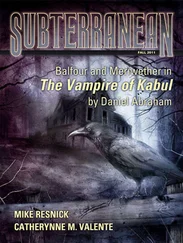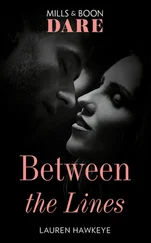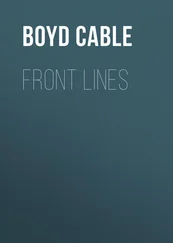Anne Siddons - Fault Lines
Здесь есть возможность читать онлайн «Anne Siddons - Fault Lines» весь текст электронной книги совершенно бесплатно (целиком полную версию без сокращений). В некоторых случаях можно слушать аудио, скачать через торрент в формате fb2 и присутствует краткое содержание. Жанр: Старинная литература, на английском языке. Описание произведения, (предисловие) а так же отзывы посетителей доступны на портале библиотеки ЛибКат.
- Название:Fault Lines
- Автор:
- Жанр:
- Год:неизвестен
- ISBN:нет данных
- Рейтинг книги:3 / 5. Голосов: 1
-
Избранное:Добавить в избранное
- Отзывы:
-
Ваша оценка:
- 60
- 1
- 2
- 3
- 4
- 5
Fault Lines: краткое содержание, описание и аннотация
Предлагаем к чтению аннотацию, описание, краткое содержание или предисловие (зависит от того, что написал сам автор книги «Fault Lines»). Если вы не нашли необходимую информацию о книге — напишите в комментариях, мы постараемся отыскать её.
Fault Lines — читать онлайн бесплатно полную книгу (весь текст) целиком
Ниже представлен текст книги, разбитый по страницам. Система сохранения места последней прочитанной страницы, позволяет с удобством читать онлайн бесплатно книгу «Fault Lines», без необходимости каждый раз заново искать на чём Вы остановились. Поставьте закладку, и сможете в любой момент перейти на страницу, на которой закончили чтение.
Интервал:
Закладка:
“And I’ll be sorry,” he said equably. “You’re good company, you and Glynn, and I’ve enjoyed this morning with both of you. And Curtis is as lovesick as a puppy. Like I said, conquer and run. You’re all alike. Did your sister say when she’d be back, by the way?”
“No. She said she’d let me know. I don’t imagine it will be long—”
“I don’t think I’d count on that.”
I looked at him.
“The tone speaks louder than the words,” I said. “You want to tell me what you meant by that?”
“Nothing unkind. Really. I just…I’ve seen more than a few other pretty women leave that lodge like bats out of torment early in the mornings. Mostly they don’t come back. Your sister is a pretty woman and a nice one, and I don’t want you to worry about her, and I expect you do a lot of that. I think you’ve got enough on your plate right now. I want you to be able just to kick back and let the woods do what they do.”
It was an extraordinary little speech to make to a stranger, especially since much of it was uncannily accurate, and it annoyed me both in its familiarity and its accuracy.
“Do you dabble in dysfunctional family therapy too?” I said sourly.
“No, but I’m a member of a family that gives new luster to the word dysfunctional. I know the signs. I’m sorry. I spoke out of turn. Comes from being a hermit. Us hermits are the world’s worst blabbermouths if you give us a chance. Never start a conversation with a hermit or you’ll be stuck for the millennium.”
“No need to apologize. But I’d be interested to know how you knew about us—or thought you did. Us Southern women are raised never to show our true feelings in public.”
“Don’t I know that,” he said. “Well, if you really want to know, I’ll tell you over a Bloody Mary and cold crab. But not until then. I’m too faint with hunger to poke around in psyches, mine or yours.”
“If I show you my psyche, you’ve got to show me yours,” I said, feeling the morning’s easy familiarity slide back. I could, after all, I thought, tell this man anything. I could feel no harm anywhere in him. The very fact that he was a stranger and would remain one was both license and armor. I realized suddenly how very liberating anonymity was. It’s the reason, I thought, that you can talk about things to people on airplanes that you’d never tell another soul at home. There’s no context between you. Anything goes in a vacuum; the very lack of any history between you is like a shot of Demerol.
The restaurant sat hard by the south end of San Francisco Bay, next to the yacht club and marina where, Glynn had said, Marcie’s father had a membership and there was a plethora of cool boys. I tried to imagine my daughter into the scene, splashing in the azure pool that was visible over a jacaranda hedge; climbing aboard one of the sleek, white sailboats bobbing at their moorings; running in a group of wet, seal-brown adolescents toward the snack bar. I could see the Glynn I had found in California, but not the one I had left home seeking. I shook my head. I wasn’t much for Bloody Marys, and the one I was sipping was my second.
It seemed to me to be quite late. We had not gotten a table until after one, and we had drunk and talked, or sat in comfortable silence watching the very white sails on the very blue bay and the green mountains above them, for what felt like a long time. I had a nagging sense of something left undone, somewhere I had to be, but the sun was warm on my head and shoulders and the breeze was cool and soft on my face, and the flowering vines and tubs of blooms on the outdoor deck where we sat were hypnotic, and gradually the feeling faded. The vodka helped too, undoubtedly. By the time the crabs came, huge and rosy and served with lime wedges and a wonderful thyme-flavored sauce, I was almost totally a creature of indolence and sensation. I had shucked off my heavy shirt and sat in Stuart Feinstein’s “Eat Your Breakfast” tee, feeling the sun running in my veins out to the tips of my toes and fingers. I kept wanting to yawn and stretch until all my joints popped. I did a fair amount of it.
T.C. half-sat, half-slouched across from me, his feet in huge, scuffed hiking boots, propped in an empty chair, eating lime wedges. He had taken off his jacket, too, and wore a handsome, heavy Oxford cloth shirt with the sleeves rolled halfway up his brown forearms. It was faded blue and became him. I knew that it was Brooks Brothers; Pom had dozens of them. For some reason that surprised me. A hermit in a Brooks Brothers button-down? He had removed the mended wire-rimmed glasses and replaced them with a pair of dark yellow aviator’s glasses, also bent and mended, that gave his coal-chip eyes the inhuman glitter of a wild animal’s. The white teeth and the black beard and hair, with red highlights glistening now in the sun, added to the impression of a predator. But his hawk’s face was slack with sun and liquor and good humor, and his smile had a singular sweetness, like a sleepy child’s. There was a scattering of tiny black freckles across the bridge of his nose; I had not noticed them before. Celt freckles; Pom had a few of them, too.
“Are you Scottish or Irish?” I asked, breaking the long, sun-humming silence.
“English as far back as the Domesday Book, or so I’m told. With some Yamacraw Indian thrown in, though nobody in my family will admit to it. I think it was one reason nobody made much of a fuss when I took off West. Sooner or later they probably would have paid me to stay away so nobody could see the Yamacraw in my face. Nobody else in the clan has it.”
He said it so mildly that I wondered if he were joking.
“Why do you ask?” he said, leaning his head so far back that it hung over the back of the Adirondack chair, leaving his throat bare. I saw that it was pale. He was not naturally dark, then, but brown with sun and wind. Again like Pom. I was obscurely glad that his eyes were black-brown and not Pom’s spotlight blue.
“My husband has those freckles and he’s a Celt,” I said, and then blushed hotly and was angry with myself for the blush. Lord, what a ninny, I thought fiercely. This is not prom night.
But he only said, “Ah,” and went on lolling his head back, eyes closed against the slanting sun. He looked as boneless and inert as a ventriloquist’s dummy that had been tossed across the chair. I sat up straighter and looked at my watch, shaking my head to clear the sweet lassitude from it. Three forty-five.
“Do you realize that we’ve sat here guzzling vodka and stuffing our faces for almost three hours?” I said.
He snapped his head back down.
“You need to get back?” he said, yawning.
“I thought I’d call Glynn—”
“Why?”
“Well…just to see that she’s settled in. Let her know where I’ve been, in case she’s tried to call—”
“I’ve got an answering machine,” he said. “Pringle won’t have a phone, but he still doesn’t want to miss the four hundred calls he gets every day. He put in the machine before I even moved in. You can call her back if she’s called.”
“It’s just that it’s the first time she’s been away from me for this long in a strange place, besides camp, and she knows everybody there.”
“She’s not going into the heart of darkness, only the heart of Palo Alto. Though they may be one and the same, at that. How old is she, anyway? Sometimes she looks twelve, and others you can see the woman she’s going to be. Some woman, too.”
“She’s sixteen,” I said curtly. Put that way, it did sound ridiculous, my fussing about my daughter.
“So why do you hover? Has she been sick? She’s awfully thin, you know. Well, of course you do. Anorexia, isn’t it?”
“Not anymore,” I said, biting my words off short and staring at him levelly. “She’s gained a good bit since she’s been out here. And yes, we’ve had treatment and therapy for her; the best. It’s working, and I wasn’t aware that I hover. How do you know so much about anorexia, anyway?”
Читать дальшеИнтервал:
Закладка:
Похожие книги на «Fault Lines»
Представляем Вашему вниманию похожие книги на «Fault Lines» списком для выбора. Мы отобрали схожую по названию и смыслу литературу в надежде предоставить читателям больше вариантов отыскать новые, интересные, ещё непрочитанные произведения.
Обсуждение, отзывы о книге «Fault Lines» и просто собственные мнения читателей. Оставьте ваши комментарии, напишите, что Вы думаете о произведении, его смысле или главных героях. Укажите что конкретно понравилось, а что нет, и почему Вы так считаете.












